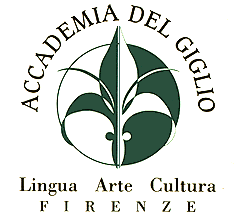The last three Medicis were Ferdinando II, Cosimo III and Gian Gastone.
 Ferdinando ruled the country from 1621 to 1670. His father died when Ferdinando was only 11 and, as he was too young to be the new grand duke, his mother and his aunt acted as regents, besides arranging the Ferdinando’s marriage with Vittoria della Rovere who, at that time, was just 2 years old (!).
Ferdinando ruled the country from 1621 to 1670. His father died when Ferdinando was only 11 and, as he was too young to be the new grand duke, his mother and his aunt acted as regents, besides arranging the Ferdinando’s marriage with Vittoria della Rovere who, at that time, was just 2 years old (!).
When Ferdinando became the actual ruler he was immediately loved by his subjects mainly because of his friendliness and his amiable character, two qualities, which did not turn out to be very useful for his leadership.
However, Ferdinando showed always a feeling of attachment to his people: he used to spend most of his his free time playing bowls with his guards and in 1630, during the plague, he even went to the city centre to help his subjects.
His marriage was unluckily not very happy since Ferdinando was very open-minded and very tolerant, while his wife Vittoria was a very austere and religious woman. Nevertheless the couple managed to have two children.
After Ferdinando’s death the government became rather unstable especially owing to the terrible struggle of power between Vittoria della Rovere and her French daughter-in-law Marguerite Louise of Orléans, who eventually decided to come back to France and leave her weak husband: Cosimo III. Ferdinando’s son was completely subject to his mother’s will: Vittoria della Rovere pushed  the young grand duke to separate from his wife, to dismiss some Ferdinando’s ministers in favour of others and to impose moral regulations on all the grand duchy which was unprepared to bear this kind of strict impositions. In 1723, after 53 years of Cosimo’s kingdom, Gian Gastone, the third-one of three children, became grand duke.
the young grand duke to separate from his wife, to dismiss some Ferdinando’s ministers in favour of others and to impose moral regulations on all the grand duchy which was unprepared to bear this kind of strict impositions. In 1723, after 53 years of Cosimo’s kingdom, Gian Gastone, the third-one of three children, became grand duke.
Gian Gastone ascended the throne when he was 57.  Since his childhood he showed a very introverted temper, he grew up practically without his mother and almost without a father. He loved sciences, botany and art, but he was completely uninterested to public affairs. When he succeeded to his father he tried to reduce the taxation on corn and also attempted to interrupt public executions. On the contrary of his father religiousness, he intended to diminish the strong influence of the Pope increased during Cosimo III’s government, but in the last years of his life his indolence and his depravity overtook him and he died nearly blind and senile in 1737. This was the sad end of a dynasty which for over three centuries had been so powerful and prestigious.
Since his childhood he showed a very introverted temper, he grew up practically without his mother and almost without a father. He loved sciences, botany and art, but he was completely uninterested to public affairs. When he succeeded to his father he tried to reduce the taxation on corn and also attempted to interrupt public executions. On the contrary of his father religiousness, he intended to diminish the strong influence of the Pope increased during Cosimo III’s government, but in the last years of his life his indolence and his depravity overtook him and he died nearly blind and senile in 1737. This was the sad end of a dynasty which for over three centuries had been so powerful and prestigious.
The Medicis dynasty: the last three grand dukes.Scrivi un commento |







Commenti recenti